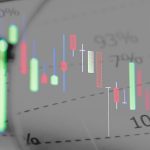Big data is nowadays one of the most common buzzwords you might have heard of. There are many ways to define what big data is, and this is why probably it still remains a really difficult concept to grasp. Someone describes big data as dataset bigger than a certain threshold, e.g., over a terabyte (Driscoll, 2010), while others look at big data as dataset that crashes … [Read more...] about Data science and Big Data: Definitions and Common Myths
Big Data
Learn everything you need to know about big data. Find out how companies are using this revolutionary technology and what it means for your business strategy.
4 Ways Big Data is Helping Cardiologists Successfully Treat Heart Diseases
When it comes to diseases, most people are concerned about heart disease and cancer. Because of this concern, fundraisers are held and donations made to help researchers find cures. While some people do donate to heart disease research, in years past the majority of money was being raised for cancer research. It is admirable that people have a strong desire to raise awareness … [Read more...] about 4 Ways Big Data is Helping Cardiologists Successfully Treat Heart Diseases
A Layman’s Guide to Understanding the World of Big Data
In God we trust; all others must bring data" - W. Edwards Deming Machine Learning an elixir for new world technology The world of analytics is now talking about Support Vector Machine (SVM), Nave bayes, expectation maximization using nave bayes, random forest, bagged regressions et al. everything is about adapting learning and self-evolving algorithms that augment the … [Read more...] about A Layman’s Guide to Understanding the World of Big Data
The Future is Now, Big Data Trends Going Forward
The future is approaching rapidly, in fact in fast evolving Big Data world it has already arrived. The seeds of future are already sown in the present. Many trends are visible today which are going to be the cornerstones of how Big Data landscape will look moving forward. Just like any data technologies since the days of Comma Separated Value (CSV) files, data has never been … [Read more...] about The Future is Now, Big Data Trends Going Forward
What Does Big Data Mean For Sustainability?
Big data is the buzzword. Everything that surrounds you is impacted by big data today. The phenomenon took shape earlier in this decade and now it has become a full-blown reality. There are now a growing number of compelling ways in which big data analytics is being applied to solve real world problems. The biggest of these problems, environment sustainability is also not out … [Read more...] about What Does Big Data Mean For Sustainability?
What is big data?
Big data is a term that refers to the massive amount of digital data created and shared every day. Big data can transform how we live, work, and communicate. It can be used to improve everything from public health and urban planning to business and marketing.
Big data is also changing the way we think about privacy and security. The volume, velocity, and variety of big data present challenges and opportunities for organizations and individuals. Regardless, big data is here to stay, and its impact will only continue to grow in the years to come.
What is big data analytics?
Big data analytics is the process of turning large, complex data sets into actionable insights. Businesses use various analytical tools and techniques, including machine learning and statistical analysis, to do this.
Big data analytics can be used to improve decision-making in areas like marketing, operations, and customer service. It can also be used to identify new business opportunities and optimize existing processes. With the help of big data analysis, businesses can gain a competitive edge by using their data better.
Want to learn more about big data? Datafloq has courses available. Contact us to get started.
When was big data introduced?
The term big data was coined in the 1990s, with some giving credit to John Mashey for popularizing the term. However, the concept of big data has been around for much longer.
Where does big data come from?
In the early days of computing, scientists and businesses began to realize that the amount of data being generated was increasing exponentially. As a result, they began to develop new methods for storing and processing data.
Over time, these methods have become increasingly sophisticated and have played a key role in enabling businesses to make sense of vast amounts of information. Today, big data is used in various industries, from retail to healthcare, and its importance is only likely to grow in the years to come.
What are examples of big data?
One of the most common examples of big data is social media data. With over 2 billion active users, Facebook generates a huge amount of data every day. This includes information on user interactions, posts, and even location data. Analyzing this data can help companies better understand their customers and target their marketing efforts.
Another example of big data is GPS signals. These signals are constantly being generated by devices like cell phones and fitness trackers. When combined with other data sets, GPS signals can be used to provide insights into everything from traffic patterns to human behavior. Finally, weather patterns are another type of big data set. By tracking these patterns over time, scientists can better understand the impact of climate change and develop strategies for mitigating its effects.
How do companies use big data?
Companies use big data in marketing, product development, and customer service. By analyzing large data sets, businesses can identify patterns and trends that would be otherwise difficult to spot. For example, a company might use big data to track customer behavior patterns to improve its marketing efforts.
Alternatively, a company might use big data to improve its products by identifying areas where customers are most likely to experience problems. For instance, big data can be used to improve customer service by finding pain points in the customer journey. Ultimately, big data provides companies with a valuable tool for gaining insights into their business operations.






